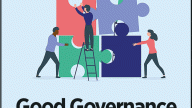EEDI (Equality, Equity, Diversity and Inclusivity) and Wellbeing Hub, Governance, Leadership
DSC Language Guidance - Equity, Equality, Diversity and Inclusion
Download our language guidance document below, to consult with and guide you on your own EEDI journey.
Here at DSC, the Wellbeing, Equity, Equality, Diversity and Inclusion working group has been putting together an inclusive language resource as part of our commitment to anti-discrimination and building a stronger, more inclusive charity sector.
We are delighted to now present our external language guidance to the wider charity sector for other organisations to use! No matter your organisation’s charitable objects or your own professional position, this guidance is for you if you are looking for suggestions and explanations of inclusive language.
Of course, this language guidance is not prescriptive nor exhaustive. It is a collection of recommendations of alternative language terms that may be more inclusive and appropriate.
Our language guidance looks at language that we may consider avoiding, language that we may consider using instead, explanations behind why DSC has made these suggestions and examples of the suggested language in context.
The resource looks at various protected characteristics and more:
- Age
- Disability and illness
- Gender
- International development
- Race and ethnicity
- Religion
- Sexuality
- Social and economic circumstances
As appropriateness depends on context, there is also a page about what to do when you have made a mistake. Being open to discussion and feedback is vital if we are to work towards an inclusive society. Likewise, it is important to be patient and allow people room to learn and grow; as language continues to change, we will review our language guidance every year.
For this reason, we have also listed other sources of information about inclusive language at the end of our language guidance because we understand that there are many different perspectives about what constitutes inclusive or discriminatory language. Reading these other sources may facilitate further understanding.
We have published our language guidance because we understand that many organisations who would like to become more inclusive may not have the time and resources to create their own templates and resources. DSC would like to help reduce the workload of these organisations by sharing our inclusive language guidance!
Moreover, paying attention to our language is one of the ways in which our sector can become more inclusive. Language can ‘reinforce or deconstruct systems of power that maintain poverty, inequality and suffering’, according to Oxfam’s own inclusive language guide. Logically, we can also use language to celebrate our diversity, make us feel like we belong and tackle discriminatory power imbalances. And, as our sector works with and for people who often face discrimination and marginalisation, it is especially important to be mindful of our language.
We hope that organisations who are looking to make themselves more inclusive will find DSC’s language guidance useful and practical. You can download the language guidance as a PDF from the link below. If you have any queries or would like to know more, please email [email protected] or [email protected].
View and download our EEDI language guidance document here now.
(If you encounter any issues trying to view the document, please right click and select “open in new tab”).
Our conference, From Here to Diversity, takes place online on Thursday 26 September – Find out more and book your tickets now (check out what delegates from last year said below!).
“Informative, punchy, and engaging, this conference day had a bit of everything to provoke thought, as well as inspire conversation and genuine action post-event.”– Holly Prest, Global Grooves
“The event was peppered with little gems of wisdom and inspiration – on topics from neurodiversity to the concept of “virtue signalling” to having the courage of your convictions.” – Phil Gillam, Age UK Shropshire Telford & Wrekin


